 The previous blog post discussed the effectiveness of Maryland DUI checkpoints, and specifically focused on Howard County, Maryland. Howard County has long since been the most aggressive Maryland County when it comes to instituting and publicizing DUI checkpoints. This post will go into greater detail about yet another Maryland county choosing to make a news splash by instituting a DUI checkpoint during a holiday weekend. The cost and inconvenience of the latest Howard County DUI checkpoint arguably outweighed the actual benefit, but you would never hear anyone from Howard County police admit to that. On the other hand, police from this weekend’s Maryland DUI checkpoint in Worcester County may have spilled the beans on what they really think about the value of DUI checkpoints.
The previous blog post discussed the effectiveness of Maryland DUI checkpoints, and specifically focused on Howard County, Maryland. Howard County has long since been the most aggressive Maryland County when it comes to instituting and publicizing DUI checkpoints. This post will go into greater detail about yet another Maryland county choosing to make a news splash by instituting a DUI checkpoint during a holiday weekend. The cost and inconvenience of the latest Howard County DUI checkpoint arguably outweighed the actual benefit, but you would never hear anyone from Howard County police admit to that. On the other hand, police from this weekend’s Maryland DUI checkpoint in Worcester County may have spilled the beans on what they really think about the value of DUI checkpoints.
The Worcester County DUI checkpoint was conducted through a collaboration of various police departments. Police departments in the Delmarva region have collaborated in the past during previous DUI checkpoints. The Maryland police departments involved in this particular DUI checkpoint team included cops from Berlin, Ocean City, the Worcester County Sheriff, and the Maryland State Police. The Maryland State Police typically takes care of all the public relations in multi jurisdictional efforts such as this Worcester County DUI checkpoint, and the state police spokesman made an extremely telling statement. In a press release the Sergeant was quoted as saying of DUI checkpoints, “they don’t always result in a lot of people being arrested for DUI, but you have a lot of contact and education”. You can take the Sergeant’s comments as typical PR rhetoric and simply gloss over them, or you could dissect and analyze the comments. This being a legal blog, we will do the latter. The Maryland State Trooper first admitted that the checkpoints do not result in a lot of DUI arrests. If the checkpoints do not result in arrests, then why would multiple Maryland police agencies spend time, money, and resources collaborating to plan the checkpoints? Especially when we already know from multiple studies that police can make more DUI arrests using simple patrol saturation tactics, which require minimal planning and collaboration.
Continue reading →
 Criminal Defense Lawyer Blog
Criminal Defense Lawyer Blog


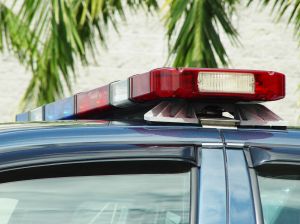 Howard County police recently set up a DUI checkpoint on Maryland Route 1. The checkpoint, which was located in North Laurel, began in the late evening on Friday night and extended into the early morning hours of Saturday. Police chose the location after examining DUI arrest data and traffic accident data where alcohol was involved. Howard County police did not release the exact hours of the DUI checkpoint, or how many officers were involved in the operation, but typical DUI checkpoints last roughly 6 hours and involve at least 10 police officers. Howard County did release the statistics of how many cars were stopped and how many arrests were made. In total, the DUI checkpoint resulted in 690 vehicles being stopped, and a total of 5 people being arrested. Of the 5 arrests, two were for driving on a suspended license, and 3 arrests were for DUI. One of the suspects arrested for DUI was 18 years old, and was also charged with a separate alcohol charge of underage drinking.
Howard County police recently set up a DUI checkpoint on Maryland Route 1. The checkpoint, which was located in North Laurel, began in the late evening on Friday night and extended into the early morning hours of Saturday. Police chose the location after examining DUI arrest data and traffic accident data where alcohol was involved. Howard County police did not release the exact hours of the DUI checkpoint, or how many officers were involved in the operation, but typical DUI checkpoints last roughly 6 hours and involve at least 10 police officers. Howard County did release the statistics of how many cars were stopped and how many arrests were made. In total, the DUI checkpoint resulted in 690 vehicles being stopped, and a total of 5 people being arrested. Of the 5 arrests, two were for driving on a suspended license, and 3 arrests were for DUI. One of the suspects arrested for DUI was 18 years old, and was also charged with a separate alcohol charge of underage drinking. 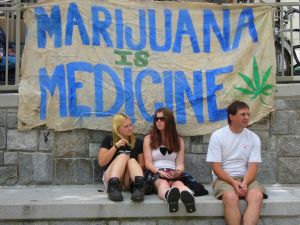 The ongoing battle marijuana to legalize marijuana in America and in Maryland took another hit recently as Federal prosecutors have increased efforts to crackdown on medical marijuana dispensaries. This latest crackdown effort came at the hands of Federal lawyers and court papers rather than with the search warrants and guns of the DEA and FBI. No arrests were made in any of the latest anti marijuana push, but a strong message has been sent across the country that the Feds are not ready to reverse their position on marijuana legalization.
The ongoing battle marijuana to legalize marijuana in America and in Maryland took another hit recently as Federal prosecutors have increased efforts to crackdown on medical marijuana dispensaries. This latest crackdown effort came at the hands of Federal lawyers and court papers rather than with the search warrants and guns of the DEA and FBI. No arrests were made in any of the latest anti marijuana push, but a strong message has been sent across the country that the Feds are not ready to reverse their position on marijuana legalization. 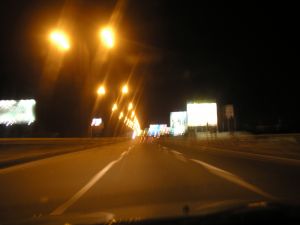 Talk about a rough night. A southern Maryland man was recently arrested for DUI and multiple other traffic offenses. Police came in contact with the man after he was pulled over for unsafe lane changing. Upon contacting the man, the Maryland State Trooper noticed the odor of an alcoholic beverage coming from the driver’s breath. After conducting a DUI investigation, the trooper arrested the man and charged him with DUI, negligent driving, and unsafe lane change. The driver was also given a breathalyzer test at the police station, where his blood alcohol content registered .15, nearly twice the legal limit. A DUI arrest and multiple traffic tickets would certainly have ruined anyone’s evening, but the southern Maryland man’s night was far from over at this point.
Talk about a rough night. A southern Maryland man was recently arrested for DUI and multiple other traffic offenses. Police came in contact with the man after he was pulled over for unsafe lane changing. Upon contacting the man, the Maryland State Trooper noticed the odor of an alcoholic beverage coming from the driver’s breath. After conducting a DUI investigation, the trooper arrested the man and charged him with DUI, negligent driving, and unsafe lane change. The driver was also given a breathalyzer test at the police station, where his blood alcohol content registered .15, nearly twice the legal limit. A DUI arrest and multiple traffic tickets would certainly have ruined anyone’s evening, but the southern Maryland man’s night was far from over at this point.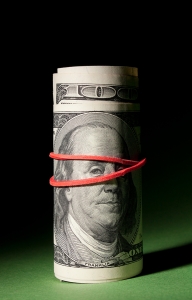 Annapolis police have arrested a 19 year old Maryland man in one of the largest drug busts in Anne Arundel County this year. Police received tips from community sources, as well as their own investigations in order to secure a search warrant that ultimately led to the seizure of nearly $30,000 worth of heroin, stacks of cash, and marijuana. Police also seized two handguns from the Maryland man’s house. Closer examination of the guns back at the Annapolis police department revealed that the firearms, a 9mm Beretta and a Smith and Wesson, were in fact stolen. Police did not reveal how much marijuana was seized from the Maryland residence, but closer inspection of the heroin revealed 140 grams of high grade heroin packaged for sale. Annapolis police are still investigating possible sources of the heroin. At the current time, police have not arrested a supplier, but more arrests stemming from this bust could be imminent. The Maryland man was arrested on 5 separate CDS drug counts including narcotics possession, possession of drugs with intent to distribute, and possession of drug paraphernalia. Bail was set at $40,000, which was posted soon after the arrest.
Annapolis police have arrested a 19 year old Maryland man in one of the largest drug busts in Anne Arundel County this year. Police received tips from community sources, as well as their own investigations in order to secure a search warrant that ultimately led to the seizure of nearly $30,000 worth of heroin, stacks of cash, and marijuana. Police also seized two handguns from the Maryland man’s house. Closer examination of the guns back at the Annapolis police department revealed that the firearms, a 9mm Beretta and a Smith and Wesson, were in fact stolen. Police did not reveal how much marijuana was seized from the Maryland residence, but closer inspection of the heroin revealed 140 grams of high grade heroin packaged for sale. Annapolis police are still investigating possible sources of the heroin. At the current time, police have not arrested a supplier, but more arrests stemming from this bust could be imminent. The Maryland man was arrested on 5 separate CDS drug counts including narcotics possession, possession of drugs with intent to distribute, and possession of drug paraphernalia. Bail was set at $40,000, which was posted soon after the arrest. A Maryland man was arrested for multiple drug charges after police used a search warrant to raid his Ann Arundel County home. Ann Arundel police executed the search warrant and discovered approximately 46 marijuana plants, which ranged from 5 to 6 feet tall. Police did not release the exact details of what led them to the 53 year old man’s home, but police did say that residents of the neighborhood had voiced to concerns to cops about possible drug activity going on in the house. According to police, the Maryland man was arrested for 9 drug charges including manufacturing marijuana, possession of marijuana with intent to distribute, and possession of marijuana. Manufacturing marijuana and possession of marijuana with intent to distribute are both felonies, while possession of marijuana is a misdemeanor. Police did not indicate whether they had any concrete evidence that the Maryland homeowner was actually dealing drugs, or if the marijuana grow operation was simply for personal use. According to police, the marijuana would eventually have a street value of over 50 thousand dollars once the marijuana was harvested.
A Maryland man was arrested for multiple drug charges after police used a search warrant to raid his Ann Arundel County home. Ann Arundel police executed the search warrant and discovered approximately 46 marijuana plants, which ranged from 5 to 6 feet tall. Police did not release the exact details of what led them to the 53 year old man’s home, but police did say that residents of the neighborhood had voiced to concerns to cops about possible drug activity going on in the house. According to police, the Maryland man was arrested for 9 drug charges including manufacturing marijuana, possession of marijuana with intent to distribute, and possession of marijuana. Manufacturing marijuana and possession of marijuana with intent to distribute are both felonies, while possession of marijuana is a misdemeanor. Police did not indicate whether they had any concrete evidence that the Maryland homeowner was actually dealing drugs, or if the marijuana grow operation was simply for personal use. According to police, the marijuana would eventually have a street value of over 50 thousand dollars once the marijuana was harvested. Enforcing Maryland marijuana laws is still a top priority for law enforcement agencies throughout the state, but public sentiment about the drug may be changing the way police look at marijuana cases. Marijuana arrests still account for the majority of all drug arrests throughout Maryland, and in most jurisdictions the ratio of marijuana arrests to other drug arrests is not even close. For example, in Montgomery County 67 percent of all drug possession arrests were for marijuana possession in 2011, and a staggering 74 percent of all drug possession arrests were for marijuana in 2010. These numbers would be even higher if all drug cases processed by Montgomery County Police were included, because a large number of marijuana possession defendants are not arrested, but rather are issued citations for the crime. In contrast, suspects caught by police with other drugs such as cocaine or heroin are almost always arrested at the crime scene. So far in 2012 the percentage of marijuana arrests to all drug arrests has fallen slightly to 63 percent. The question being asked now is whether this percentage will continue to drop as Maryland citizens and Maryland lawmakers become more tolerant of marijuana use.
Enforcing Maryland marijuana laws is still a top priority for law enforcement agencies throughout the state, but public sentiment about the drug may be changing the way police look at marijuana cases. Marijuana arrests still account for the majority of all drug arrests throughout Maryland, and in most jurisdictions the ratio of marijuana arrests to other drug arrests is not even close. For example, in Montgomery County 67 percent of all drug possession arrests were for marijuana possession in 2011, and a staggering 74 percent of all drug possession arrests were for marijuana in 2010. These numbers would be even higher if all drug cases processed by Montgomery County Police were included, because a large number of marijuana possession defendants are not arrested, but rather are issued citations for the crime. In contrast, suspects caught by police with other drugs such as cocaine or heroin are almost always arrested at the crime scene. So far in 2012 the percentage of marijuana arrests to all drug arrests has fallen slightly to 63 percent. The question being asked now is whether this percentage will continue to drop as Maryland citizens and Maryland lawmakers become more tolerant of marijuana use.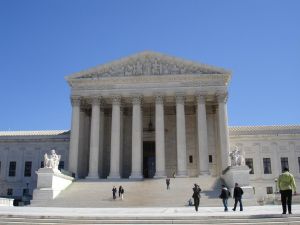 The United States Supreme Court will temporarily allow Maryland law enforcement agencies to resume their post arrest DNA testing policies according to an order signed by chief justice John Roberts. The DNA testing policies allow all Maryland law enforcement agencies to take DNA samples of suspects arrested for violent crimes such as robbery, assault, rape, and homicide. The law also allows police to take DNA from a suspect that is arrested for burglary. Although burglary is not a violent crime, it is a crime that is often only solved when forensic evidence such as DNA or latent fingerprints is recovered from the crime scene. Maryland police agencies are not allowed to take DNA samples upon arrest of suspects that are incarcerated for common non-violent crimes such as DUI, possession of marijuana, and drug distribution.
The United States Supreme Court will temporarily allow Maryland law enforcement agencies to resume their post arrest DNA testing policies according to an order signed by chief justice John Roberts. The DNA testing policies allow all Maryland law enforcement agencies to take DNA samples of suspects arrested for violent crimes such as robbery, assault, rape, and homicide. The law also allows police to take DNA from a suspect that is arrested for burglary. Although burglary is not a violent crime, it is a crime that is often only solved when forensic evidence such as DNA or latent fingerprints is recovered from the crime scene. Maryland police agencies are not allowed to take DNA samples upon arrest of suspects that are incarcerated for common non-violent crimes such as DUI, possession of marijuana, and drug distribution.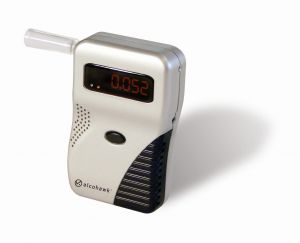 Breath alcohol tests for drivers suspected of DUI could resume in Washington D.C. as early as next month. Washington was forced to suspend its breath alcohol testing program in drunk driving cases after lawyers of convicted DUI defendants filed dozens of lawsuits challenging the validity the test results. Four of these lawsuits ended in settlements against the city, and other civil lawsuits are still pending. The city eventually admitted that its employees provided inaccurate breathalyzer test results to city prosecutors that were used as evidence in DUI cases. Just as in Maryland, Washington breath technicians are required to conduct and document regular maintenance testing for breath alcohol testing machines, but D.C. techs were neglecting to perform these maintenance tests. In some cases breath technicians were even providing false documentation to prosecuting lawyers that was directly used to prove DUI cases.
Breath alcohol tests for drivers suspected of DUI could resume in Washington D.C. as early as next month. Washington was forced to suspend its breath alcohol testing program in drunk driving cases after lawyers of convicted DUI defendants filed dozens of lawsuits challenging the validity the test results. Four of these lawsuits ended in settlements against the city, and other civil lawsuits are still pending. The city eventually admitted that its employees provided inaccurate breathalyzer test results to city prosecutors that were used as evidence in DUI cases. Just as in Maryland, Washington breath technicians are required to conduct and document regular maintenance testing for breath alcohol testing machines, but D.C. techs were neglecting to perform these maintenance tests. In some cases breath technicians were even providing false documentation to prosecuting lawyers that was directly used to prove DUI cases.  In the past few years the Maryland legislature has weakened its stance on the prosecution of marijuana possession cases. This trend began with the passing of laws that allow defendants charged with possession of marijuana to assert the legal defense of medical necessity. The Maryland legislature also went on to pass a law that will decrease the maximum jail sentence that a defendant charged with a first offense of possession of marijuana can receive. Come October, a first offense for marijuana possession will carry a 60 day maximum jail sentence rather than the scarcely used 1 year maximum jail sentence. Surprisingly though, the Maryland legislature has remained silent on the issue of synthetic marijuana.
In the past few years the Maryland legislature has weakened its stance on the prosecution of marijuana possession cases. This trend began with the passing of laws that allow defendants charged with possession of marijuana to assert the legal defense of medical necessity. The Maryland legislature also went on to pass a law that will decrease the maximum jail sentence that a defendant charged with a first offense of possession of marijuana can receive. Come October, a first offense for marijuana possession will carry a 60 day maximum jail sentence rather than the scarcely used 1 year maximum jail sentence. Surprisingly though, the Maryland legislature has remained silent on the issue of synthetic marijuana.